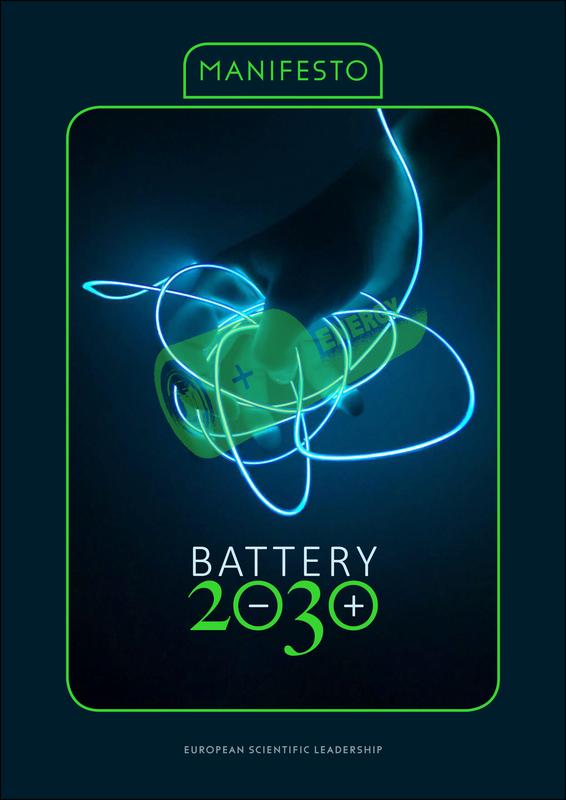
New research initiative will power up Europe’s battery revolution

The Battery 2030+ Manifesto
Professor Kristina Edström, Uppsala University, Sweden
In the Strategic Action Plan on Batteries published in May 2018, the European Commission has highlighted the need to support the European battery industry ecosystem with a long-term research initiative in future battery technologies.
The Battery 2030+ project, which currently includes 17 partners in nine European countries, has been selected for a Coordination and Support Action grant under the Horizon 2020 programme. Over a period of one year (starting in March 2019), Battery 2030+ will lay the basis for a 10-year large-scale and long-term European research project.
The vision for Battery 2030+ is to invent the batteries of the future, providing European industry with cutting-edge technologies. Batteries are among the key technologies to achieve a deep decarbonisation of the European energy system, notably in the transport sector (with electro-mobility) and in the electric power sector (with the storage of intermittent renewable energy sources).
In the near future, we will need new generations of ultrahigh-performance, reliable, safe, sustainable and affordable batteries. The competition to develop future battery technologies is already intense, but still very much open.
The project is coordinated by Kristina Edström, Professor of Inorganic Chemistry at Uppsala University in Sweden.
“We will address the challenges of making ultra-high performance batteries,” says Kristina Edström.
“This means establishing an acceleration platform for the discovery of new battery materials using machine learning and artificial intelligence, and especially focusing on interfaces in batteries where reactions take place that can be detrimental for battery lifetime. We will design smart functionalities down to the battery cell level, and pay particular attention to sustainability issues.”
“The Fraunhofer ISC, with more than 25 years of experience in the development and analysis of battery materials and components, is working on the Battery 2030+ and is also coordinating the Fraunhofer participation in the EU-wide research initiative,” explains Dr. med. Henning Lorrmann, Head of the Fraunhofer Research and Development Center for Electromobility Bavaria FZEB at the Fraunhofer Institute for Silicate Research ISC.
The Battery 2030+ consortium includes five universities (Uppsala University, Politecnico di Torino, Technical University of Denmark, Vrije Universiteit Brussel, University of Münster), eight research centres (French Alternative Energies and Atomic Energy Commission, Karlsruhe Institute of Technology, French National Centre for Scientific Research, Forschungszentrum Jülich, Fraunhofer-Gesellschaft, Fundacion Cidetec, National Institute of Chemistry, Slovenia, SINTEF AS), three industry-led associations (EMIRI, EASE, RECHARGE) and one company (Absiskey).
The Battery 2030+ consortium has also received the support of a number of European and national organisations, including ALISTORE ERI, EERA, EIT InnoEnergy, EIT RawMaterials, EARPA, EUROBAT, EGVI, CLEPA, EUCAR, KLIB, RS2E, Swedish Electromobility Centre, PolStorEn, ENEA, CIC energigune, IMEC and Tyndall National Institute.
A more detailed description of our vision can be found in our MANIFESTO (http://battery2030.eu/). Please endorse!
Coordinator Professor Kristina Edström, Uppsala University, Sweden
Email: kristina.edstrom@kemi.uu.se
Phone: +46 70 167 90 06
Deputy coordinator Dr. Simon Perraud, CEA, France
Email: simon.perraud@cea.fr
https://www.isc.fraunhofer.de/en/press-and-media/press-releases/new-research-ini…















